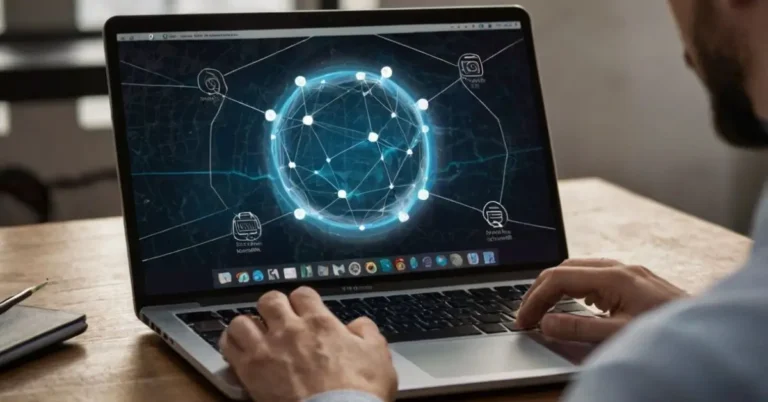A virtual private network (VPN) is a sensible choice for staying safe on the internet. Whether it’s our laptops or smartphones, they’re usually connected to the internet around the clock. And a quality VPN can help us secure our data on these devices.
However, VPNs are free and paid, and most people may not know the major differences between them. In this article, I am going to explain free and paid VPNs, their stand-out features, and pros and cons so you know which type of VPN suits you best. So, let’s start:
Free VPNs
The majority of VPN users may opt for free VPN. It’s because people generally believe that free VPNs are safe and importantly, they cost nothing. That being said, not all, but some free VPNs may not secure your device’s data but compromise it to bad actors on the internet. Now, let’s look at some important points of free VPNs.
- As I’ve already mentioned, free VPNs cost nothing and it’s their biggest upside. However, to think that you can actually use it for free is wrong. It’s because free VPNs are loaded with frustrating ads that users cannot even skip sometimes. Plus, a free VPN may steal and sell your data to third-party advertisers to stay afloat. And the worst thing is that a user may not even know if their data is breached or not.
- Some free VPNs may contain malware that affects your data stored on the device. It’s because they may lack funding for R&D and invest in high-security protocols and encryptions. Besides, they may also follow obsolete security practices which lead to data breaches.
- A free VPN has limited servers. When the number of users increases on a server, it may lead to network congestion as the server cannot cater to such high traffic. Resultantly, you may constantly disconnect or face slow internet.
Pros and Cons of Free VPN
| Pros | Cons |
| A free VPN does not charge any money for its services. | You cannot be sure about free VPNs if they steal and sell your data or not. |
| Not all, but some free VPNs may provide you anonymity on the internet. | Free VPNs bombard its users with ads. Also, ads are one of the ways free VPNs make money. |
| Most free VPNs may help you surpass geo-restricted content. | Free VPNs often slow down users’ internet connection. |
| Users do not have unlimited data bandwidth in a free VPN. |
When Should You Use It?
Free VPNs work to some extent, but if you’re extra cautious about your data and privacy, then I won’t recommend it. Plus, you must refrain from making any financial transactions or sending/receiving important data when connected to a free VPN.
However, if you want to surpass geo-restrictions, or play online games, then you may use a free VPN. As for the slow internet speed caused by a free VPN, I would suggest you go for a high-speed internet. With high-speed home internet, you won’t experience speed issues. For example, Xfinity Internet speed is quite fast even on a free VPN, and I’ve never faced any slowdowns when using a free VPN.
Paid VPN
Paid VPNs can be expensive, but they’re secure and use advanced security protocols to protect your data. Although paid VPNs may not be the top choice of most VPN users, they’re highly recommended if you want to ensure that every bit of data stored on your device remains safe. Some important points of Paid VPNs are:
- Paid VPNs offer multiple, high-speed servers to their users. As paid VPNs have ample funds for R&D and to invest in security protocols, they keep upgrading their services. Plus, paid VPNs also add new servers frequently for their users so that their internet does not slow down.
- Advanced security features, for instance, “kill switch” is offered by most paid VPNs. In the kill switch, the VPN automatically disconnects your device from the internet if the VPN is disabled for any reason. This feature is particularly handy for people who send/receive sensitive data over the internet.
- While some free VPNs may not even encrypt your data at all, paid VPNs use the strongest encryption available, for instance, AES-256 encryption to protect your data.
Pros and Cons of Premium VPN
| Pros | Cons |
| Paid VPNs offer multiple high-bandwidth servers. | Paid VPNs can be expensive for some users. |
| Paid VPNs are ad-free, so they do not need to steal your data. | Some paid VPNs may not offer advanced security features even in their premium plans. |
| Paid VPNs use extensive security protocols to keep user’s data and devices safe. | |
When Should You Use It?
Paid VPNs are the safest option if you want to protect your data while connected to the internet. Especially for remote workers, freelancers, or people who send/receive important data files over a connection must use a paid VPN.
Bonus Section: Features Comparison
Before I wind up, I will do a brief comparison between free and paid VPNs to further clarify what they offer:
| Metrics | Free VPN | Premium VPN |
| Cost | Free | Paid |
| Speed | Less | High |
| Bandwidth | Less | High |
| Servers | Limited | Multiple |
| Privacy | Minimal | Maximum |
| Ads | Yes | No |
| Additional Features | No | Yes |
| Customer Support | No or minimal | Yes |

